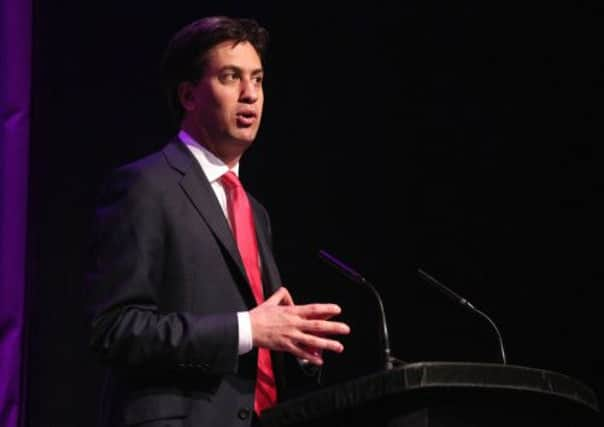Leaders: Miliband faces crucial choice


But more than a century after the formation of the Labour Representation Committee, the link between the unions and the UK’s main centre-left political party is demonstrably dysfunctional. Allegations about ballot-rigging in the selection of a Labour candidate in Falkirk are a sordid demonstration of the kind of machine politics that confirm people’s worst prejudices about the political world in general. But they also serve to shine an unflattering light on a relationship that long ago ceased to serve its original purpose. Labour needs a complete overhaul of its links with the trades unions. For Labour’s hopes of regaining power, this is an existential question. If Ed Miliband fails to do this, or if he comes up with an inadequate fudge, he will have kissed goodbye to his chances of ejecting David Cameron from Downing Street in 2015.
A key aspect of the Labour Party’s world view should always be the representation of the interests of working people, especially those suffering poor pay and working conditions at the hands of unscrupulous employers. That is a given. But it is extremely questionable whether Labour’s current relationship with the unions achieves that. Trades unions represent only a fifth of the UK working population. And of those unions, by no means all are affiliated to the Labour Party. Even among those that are linked to Labour, many of their members are not Labour voters (a particular problem in Scotland, where a significant proportion of union members back the Scottish National Party). A further problem is that the Labour-affiliated unions are dominated by a small number of mega-unions formed by a series of mergers, concentrating power in the hands of a smaller number of union barons than was ever the case at the height of union influence in the 1970s.
Advertisement
Hide AdAdvertisement
Hide AdThe idea, then, that the trades union presence within Labour is the crucible of the hopes and interests of the British working class is a fiction, and has been for some time. Labour’s 21st-century relationship with the union movement is an anachronism, and it is time it was reconfigured for the age we live in. One of the most regrettable aspects of the past week’s headlines about Falkirk is the appalling publicity it provides for a trades union movement that has recently been showing signs of a modest resurgence. At times of austerity, with brutal job cuts across public and private sectors, the case for strong union representation in the workplace is self-evident. Revelations about unions using questionable – at best – tactics to advance their aims only serve to damage the chances that people will want to put their faith in these organisations.
The move towards one-member-one-vote begun by John Smith in the early 1990s needs to be completed, with the unions losing their formal ability to influence Labour Party personnel and policy. This needs to be accompanied by a recognition across the political spectrum that it may be time to re-examine the case for state funding of political parties. Make no mistake, this is a crisis for Labour. But Miliband has the opportunity to turn this into what President Obama would call “a teachable moment” about the modern Labour Party and its position in British politics. This saga, one suspects, will come to define Ed Miliband. It is up to him whether it is as a leader of courage and boldness, or as a leader who was a prisoner of his party rather than its master.
Only way is ethics
Petrol companies accused of aiding genocide in Africa. Lucrative contracts with a Middle-East regime that is not known for its regard for human rights. Now a cosy lunch with executives of a company that animals rights campaigners claim inflicts pain on wild bears to gain a “medicinal” compound of dubious scientific value. The common thread here is that civil servants working for the Scottish Government have been heavily involved in encouraging such companies and regimes to either do business in Scotland or help Scots businesses make money abroad. This demonstrates that the Scottish civil service - which will be an even more important player in running the country should Scots vote for independence - may not yet have the breadth of experience and political antenna to ensure that when Scotland does business outside its borders it is dealing with companies and governments whose ethical practices have not been brought widely and publicly into question. As we report today, one Chinese company that uses the bile from caged bears to make some of its products will tomorrow sit down with Scots business leaders and civil servants to discuss trading links. The gruesome subject matter of the bear bile industry may not make for palatable lunch-time chat, but we hope the message is sent that such barbaric practices have no place in the global economy.